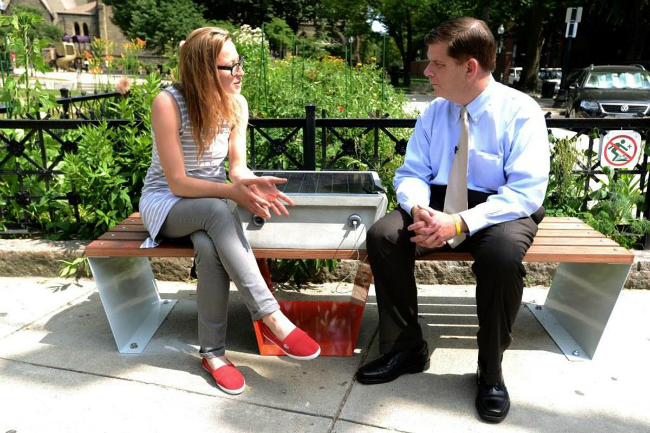
In addition to charging your phone, the benches, called “Soofas,” connect wirelessly to Verizon’s network, relaying location-based environmental information to you, such as air quality and noise-level data. Boston will be installing Soofas in several parks over the next week, which include Titus Sparrow Park, the Boston Common, and the Rose Kennedy Greenway.
The Soofas were created by Changing Environments, a spinoff of the Massachusetts Institute of Technology (MIT) Media Lab and a Verizon Innovation Program. “We are fortunate to have talented entrepreneurs and makers in Boston thinking creatively about sustainability and the next generation of amenities for our residents,” said Mayor Martin J. Walsh.
The first units will be funded by Cisco Systems, though Boston officials are asking residents what other parks the Soofas should be installed at. Residents can also recommend what the name of the Soofas in each park should be. Submissions must be entered by July 11.


